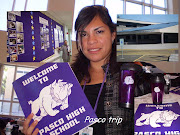
Since a few years ago the Web passed from being a place where to find entertainment to a necessary tool in a big number of activities in which learning is also included. Due to this necessity and growth of the web, web browsers have had to adapt themselves to fulfill the requirements of their users.
Explorer and Netscape have been the most popular and used web browsers along the last years but it is Explorer the one who remains winner inside the internet world. however, Netscape is working very hard in the Mozilla Project, which has woke up very much interest among internet users. In what methods for Internet access refers it is expected that in the nearest future mobile language learning will be completely possible due to the use and development of technological gadgets such as mobile phones and palms. Thus, web browsers are looking for methods how to decode easily written HTML texts. This is very important because now there are several other XML developments of potential interest to language learning educators/developers that can be carried out thanks to these methods.
One thing that struggles with these web browsers is the compatibility of very specific programs with those browsers. And although "Instant messaging" is being popular now, and holds considerable promise for user-to-user contact and communication it suffers from compatibility issues.
Finally as it was referred in the text "We need to have teachers directly involved in pushing the boundaries of the technologies in order to help search out new methods to enhance student learning"
Explorer and Netscape have been the most popular and used web browsers along the last years but it is Explorer the one who remains winner inside the internet world. however, Netscape is working very hard in the Mozilla Project, which has woke up very much interest among internet users. In what methods for Internet access refers it is expected that in the nearest future mobile language learning will be completely possible due to the use and development of technological gadgets such as mobile phones and palms. Thus, web browsers are looking for methods how to decode easily written HTML texts. This is very important because now there are several other XML developments of potential interest to language learning educators/developers that can be carried out thanks to these methods.
One thing that struggles with these web browsers is the compatibility of very specific programs with those browsers. And although "Instant messaging" is being popular now, and holds considerable promise for user-to-user contact and communication it suffers from compatibility issues.
Finally as it was referred in the text "We need to have teachers directly involved in pushing the boundaries of the technologies in order to help search out new methods to enhance student learning"












No comments:
Post a Comment